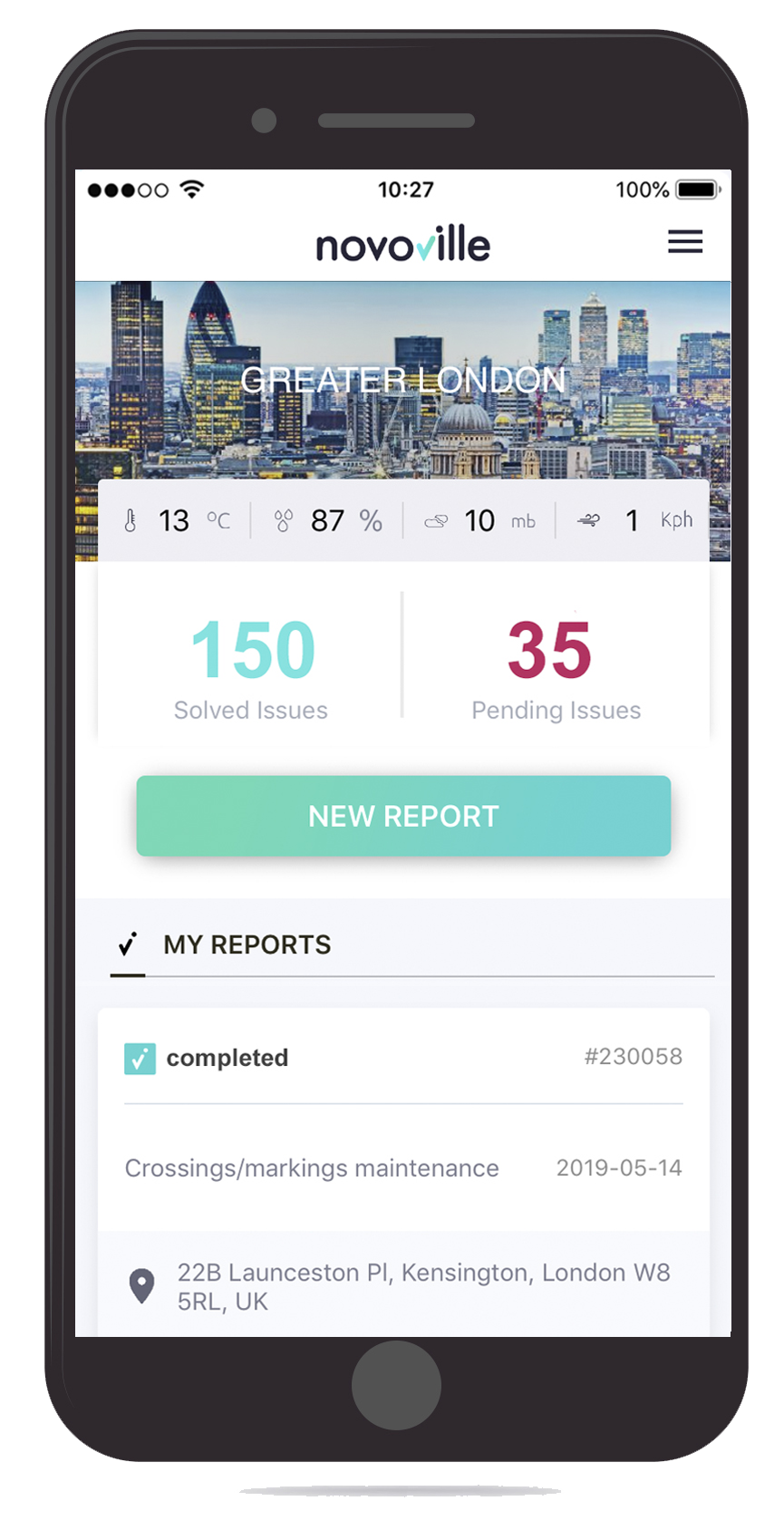Fotis Talantzis, CEO & Co-Founder of Novoville tells us how councils can solve Brexit by transforming public services with digital
Brexit has been the centre of UK politics for some years already, with people on both sides of the debate arguing that leaving or staying in the European Union (EU) will have an immediate effect on their quality of life. Yet, a recent article in the FT titled “What the UK’s ‘left-behind’ areas want after Brexit” highlighted that better public services, more tight-knit communities and increased job opportunities were key concerns for both sides.
Indeed, for the population, the perception of how well the EU or the British government is doing is often amalgamated with how well their local authority is performing. After all, it’s all about the simple things: are jobs staying in the area? Is my neighbourhood safe? How easy and quick is it to apply for a benefit or access a government service if I have to? Regardless of where people stand on Brexit, there is an overarching concern with the ‘Local’.
One of the EU’s working principles, subsidiarity, holds that problems of a certain scale must be tackled on that same scale. This is why we don’t expect the EU to issue directives related to local bin collection frequency or local library opening times. Yet, although states have put a lot of effort into pooling sovereignty “up” to tackle, say, the movement of goods and people, they have often been bad at pooling sovereignty in the opposite direction. They have not sufficiently empowered local authorities to increase citizen participation in decision-making at a local level or allowed councils to invest in improving access to and delivery of local services.
Developments in technology provide an opportunity to become more responsive to public needs, modernise service delivery and increase transparency. Local governments can be at the centre of this digital transformation. The reason is simple: they interact with businesses, citizens and other public service organisations with a very high frequency, generating a myriad of granular data. However, keeping pace with the expectations of digital citizens, exploiting data and making the right organisational changes is difficult. In an adverse budgetary context, it may seem like there are other, more pressing priorities.
We know that austerity has left local governments fighting to keep the lights on in the UK. In Scotland, devolution hasn’t meant that local authorities have the funding or staff required to fulfil their new missions. Residents everywhere complain that libraries close, doctors disappear and that communication with the authorities is inadequate. A recent LGA poll on resident satisfaction with councils found a significant decline between 2013 and 2018, with residents “feeling well-informed” dropping by 17% and “satisfied with the local council” falling by 13% during the period. Such deteriorating customer experience is concerning.
We believe that putting local residents back at the centre of the frame and harnessing their collective intelligence is a key part of the solution to this crisis of the ‘local’, with positive consequences for the country as a whole. Contrary to what most in the sector believe, this doesn’t hinge on spending lavish sums of money on grand transformation programs, but it does have a lot to do with applying new technology intelligently and improving business processes incrementally to deliver open, responsive and participatory public services.
To achieve this, emphasis must be placed on both access and delivery of services. If you improve the interface with residents, but delivery is not efficient, all you’re doing is raising residents’ expectations and creating more work for the council’s staff. If you fail to improve the interface with residents, however, their satisfaction and engagement rates will continue to drop, accentuating this impression of being ignored or left behind.
Our company, Novoville, is making it its mission to save the local, and re-establish trust between people and government. That’s why we offer a civic engagement platform which transforms the way citizens interact and transact with their local government, reducing friction and costs.
It allows councils to capture all incoming resident communications and issues in a single system. It gives residents access to all the digital services offered by the council in one place. It allows everyone to engage with their local authority using whichever channel best suits their needs: a free mobile app, web app, chatbots, or social media. Everything is intuitive, the experience the same across devices, and it’s built to enable dialogue.
Yet, we know that technology itself isn’t a silver bullet. That’s why Novoville always starts by auditing and improving business processes. We also know that simply making technology available is no guarantee that people will use it. That’s why Novoville also helps with the process of reaching out to residents, raising awareness about local matters and engaging with them on social media.
At Novoville, we take a piecemeal approach: we solve problem by problem and improve process by process. We don’t impose multi-million-pound contracts or locked-in multi-year deals. We offer training, technology and transfer of skills, and we deliver it in two to three months. Our focus is solely on empowering the Local.
In councils like Watford and Guernsey, Novoville has tripled responses to consultations on local matters. Using our in-house chatbot technology, councils can start an automated discussion and collect local intelligence on any popular chat application. Thousands of people have already voiced their opinion quickly and easily, achieving an average of 65% re-engagement rate. This costs 20% of traditional consultation methods…
For cities as large as Athens (700,000 residents and 2 million daily commuters), Novoville has served as a state-of-the-art CRM system. Within six months of Novoville operation, post-crisis Athens handled more than 60,000 citizen requests and resolved 84% of them. New processes have saved thousands of man-hours, increasing municipal services’ efficiency by 24%. Three months later, Novoville complemented this with a brand-new parking app able to integrate sensor data (e.g. occupancy of a parking spot) in real time. On the whole, with an easy way to report a local problem, give their opinion, and buy mobility in the city, residents feel listened to and their city finally feels like it’s improving.
Athenians are not alone: at present, 3 million people around Europe have started rebuilding their relationship with the local through Novoville.
Whether you’re a diverse regional city, a market town or a rural community, Novoville can help you solve your key local issues. Over time, this will have a big impact on the perception of problems that have led to decisions as important as Brexit. The local is the key to a bottom-up regeneration of more democratic, sovereign and independent communities. That’s a good start for the country.
Please note: This is a commercial profile






![Europe’s housing crisis: A fundamental social right under pressure Run-down appartment building in southeast Europe set before a moody evening sky. High dynamic range photo. Please see my related collections... [url=search/lightbox/7431206][img]http://i161.photobucket.com/albums/t218/dave9296/Lightbox_Vetta.jpg[/img][/url]](https://www.openaccessgovernment.org/wp-content/uploads/2025/04/iStock-108309610-218x150.jpg)





